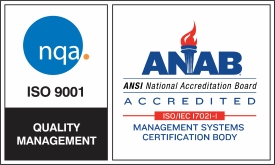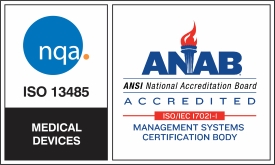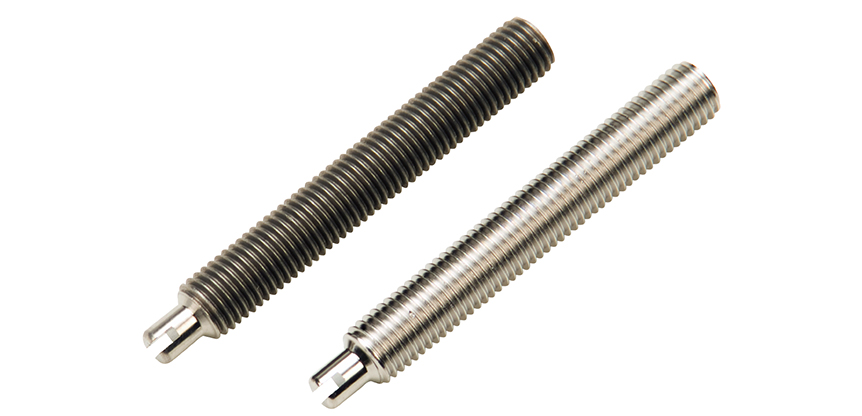
Passivation is an essential finishing process enhancing the durability and efficacy of metal parts in industries with no room for error, such as medical device manufacturing.
Critical to ensuring that medical devices perform reliably over time, passivation uses a specialized chemical treatment that enhances the corrosion resistance of stainless steel and other alloys.
Understanding the Passivation Process
Passivation is a chemical process designed to remove free iron and other contaminants from the surface of stainless steel and other corrosion-resistant alloys. This process involves immersing metal parts in an acidic solution, typically nitric or citric acid, to dissolve any iron particles or impurities present on the surface. As a result, a thin, inert oxide layer forms on the metal surface, providing a protective barrier against corrosion and enhancing the part’s biocompatibility. While electropolishing is often specified for its ability to remove a precise layer of surface material to eliminate defects and leave parts passivated at the same time, passivation is preferred for parts where extremely tight tolerances make the removal of any surface material potentially problematic.
Importance in Medical Applications
In the medical field, where devices come into direct contact with bodily fluids and tissue, the durability and biocompatibility of metal parts are critical for patient health and safety. Passivation plays a key role in ensuring that medical devices maintain their structural integrity and functionality throughout their intended lifespan. Here are the benefits of passivation for medical metal parts:
Corrosion Resistance & Durability
Medical instruments and implants must stand up to harsh environments, including contact with bodily fluids and sterilization processes. Without adequate corrosion resistance, metal parts can degrade over time, compromising their performance and potentially posing risks to patients. Passivation creates a protective oxide layer that shields the metal surface from corrosive agents, prolonging part life.
Biocompatibility
The interaction between medical devices and the human body is carefully regulated to minimize the risk of adverse reactions. Passivation helps enhance the biocompatibility of metal parts by eliminating surface contaminants that could create a risk of tissue rejection.
Sterilization Compatibility
Sterilization is a standard procedure in healthcare settings to eliminate harmful pathogens and ensure the safety of medical devices. Passivated metal parts exhibit greater resistance to sterilization methods such as autoclaving, gamma irradiation, and chemical sterilant. By maintaining their integrity after repeated sterilization cycles, passivated components contribute to the reliability and longevity of medical equipment.
Regulatory Compliance
Regulatory bodies such as the Food and Drug Administration (FDA) in the United States and the European Medicines Agency (EMA) in Europe have stringent requirements for the manufacturing and quality control of medical devices. Passivation is often a mandated step in the production process, and compliance with industry standards and regulations is essential to gaining approval for medical products.
Passivation for Improved Metal Parts
Passivation plays a pivotal role in ensuring the safety, reliability, and regulatory compliance of medical metal parts. By enhancing corrosion resistance, promoting biocompatibility, and facilitating compatibility with sterilization processes, passivated components contribute to the overall quality and performance of medical devices. Able passivation processes meet the standards established under ASTM F86 and ASTM A967 for metal finishing processes for increasing corrosion resistance and ensuring the elimination of surface contaminants like free iron from medical devices and surgical implants.
For medical device manufacturers who must ensure the performance of metal parts over their intended lifespan while meeting all regulatory requirements, partnering with Able Electropolishing provides precise, consistent and high-quality metal finishing results, customized by part and by alloy.
Whether you need citric or nitric passivation or electropolishing service, which provides a higher degree of corrosion resistance, improved surface finish, and removal of microscopic burrs, cracks and other imperfections, Able Electropolishing delivers the results you need – along with world class customer service and start to finish production support.
Contact us to learn more about passivation for medical manufacturing




